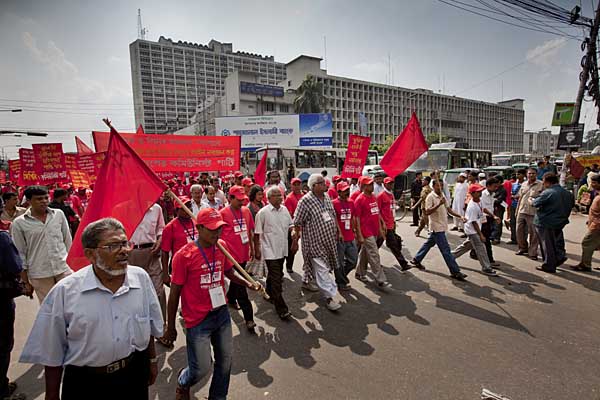China, Mao and the global neoliberal offensive
Review by Chris Slee
The Rise of China and the Demise of the Capitalist World Economy
By Minqi Li
Monthly Review Press, New York, 2008
January 4, 2011 – Links International Journal of Socialist Renewal -- Minqi Li’s The Rise of China and the Demise of the Capitalist World Economy deals with a range of topics including the history of the Chinese Revolution, China's role in the world economy today and the future of the world economy. This review will not deal with every aspect of the book, but will focus on Minqi Li's discussion of China's history, economics and politics, and its current role in the world.
What if the state of the world were measured by its majority?

What real democracy looks like: a communal council in Merida votes for its electoral commission in July 2010. Photo by Tamara Pearson.
Wikileaks: Sweden, Assange and the USA

Wikileaks founder Julian Assange was released on bail in Britain on December 16, 2010. It is almost a certainty that the editor of Wikileaks will be turned over to the United States if he is extradited to Sweden.
By Al Burke
December 28, 2010 -- Links International Journal of Socialist Renewal/Nordic News Network -- Sweden has requested the extradition of Wikileaks editor Julian Assange from the United Kingdom, and legal proceedings are expected to commence at the start of the new year. Due to the extraordinary behaviour of the prosecutor in charge of the case, questions have been raised about the prospects of Assange receiving impartial justice in Sweden.[1]
Fred Magdoff: Creating an ecological civilisation

By Fred Magdoff
``It is inconceivable that capitalism itself will lead directly to an ecological civilization that provides the basic needs for all people. However, building an ecological civilization that is socially just will not automatically happen in post-capitalist societies. It will occur only through the concerted action and constant vigilance of an engaged population.''
January 2011 -- Monthly Review -- Given the overwhelming harm being done to the world’s environment and to its people, it is essential today to consider how we might organize a truly ecological civilization—one that exists in harmony with natural systems—instead of trying to overwhelm and dominate nature. This is not just an ethical issue; it is essential for our survival as a species and the survival of many other species that we reverse the degradation of the earth’s life support systems that once provided dependable climate, clean air, clean water (fresh and ocean), bountiful oceans, and healthy and productive soils.
`Development', capitalism, NGOs and people's movements in Bangladesh: an interview with Anu Muhammad

China: Workers' strikes -- what did they win?
By Boy Lüthje
Συνέντευξη με τον Michael Lebowitz και την Marta Harnecker: "Να ξαναεφεύρουμε τον σοσιαλισμό"
[English: http://links.org.au/node/2072]
alterthess :: όλες οι ειδήσεις από την άλλη Θεσσαλονίκη (http://alterthess.gr) --
Greece: PASOK, right wing in deep crisis; support for anti-capitalist left grows

By Tassos Anastassiadis and Andreas Sartzekis
December 2010 -- International Viewpoint -- Not so long ago the defeat of the right-wing candidates in the municipal elections in the two major cities in Greece, Athens and Thessaloniki, would have been followed by scenes of popular enthusiasm in the streets throughout the night. There was nothing like that this time, when the right was defeated in cities where it had ruled for decades!
United States: 120th anniversary of the massacre at Wounded Knee: The bloody birth of empire
December 29, 2010 -- Rustbelt Radical -- Wounded Knee, December 29, 1890 is full of meaning. Not just for the Miniconjou and Hunkpapa Lakota who were victims and perished in their hundreds, but for the course of imperial America. Its violence an echo of the violence that was the settlement of this country.

